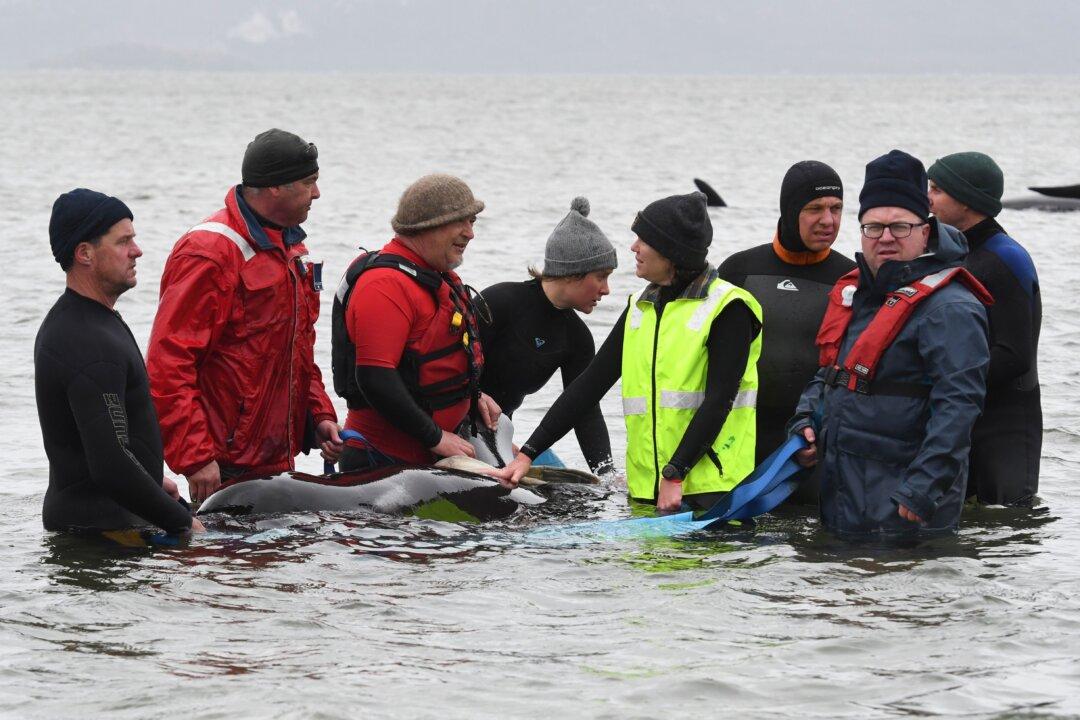The cause of Australia’s biggest mass whale stranding will likely remain a mystery but the tight-knit, social nature of the species involved may have played a big part.
As of Friday, almost 100 of some 470 long-finned pilot whales had been rescued from sandbars at Macquarie Harbour on Tasmania’s rugged west coast.





